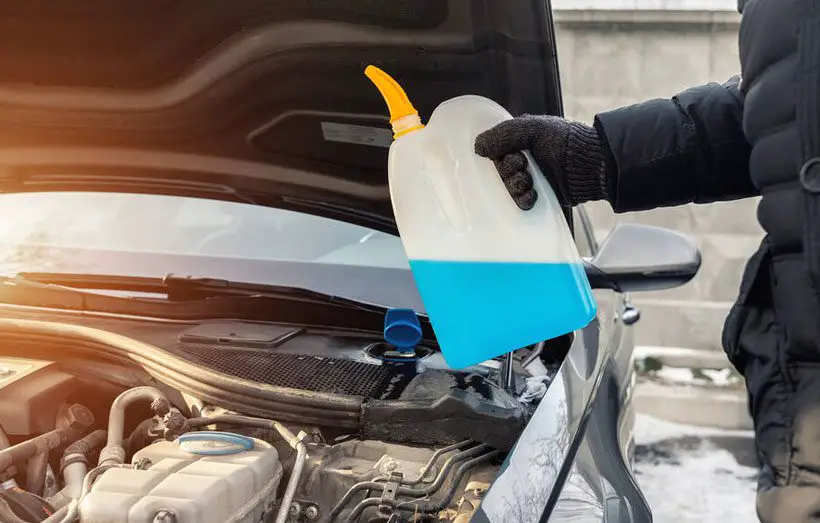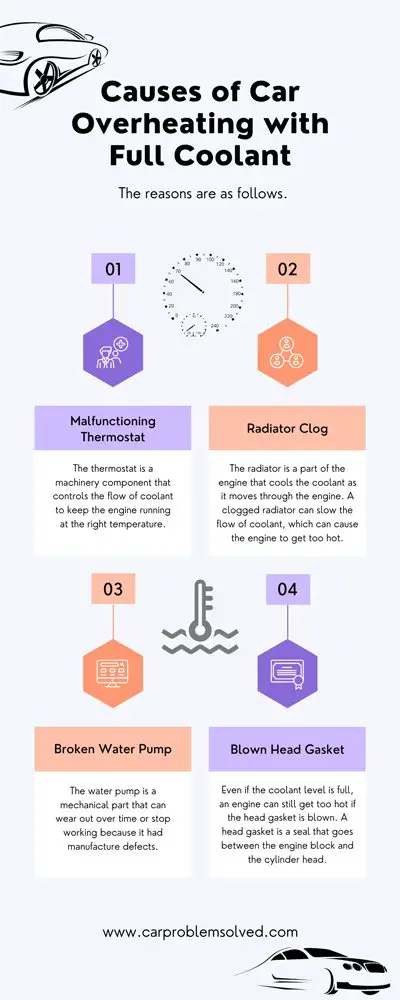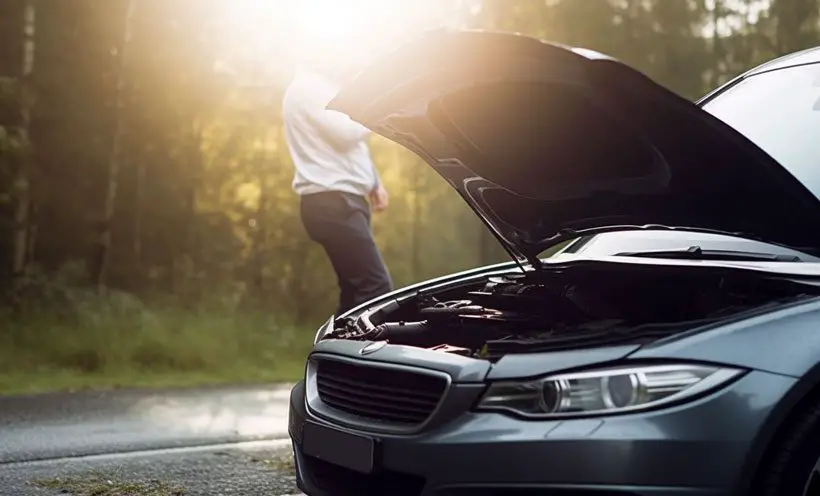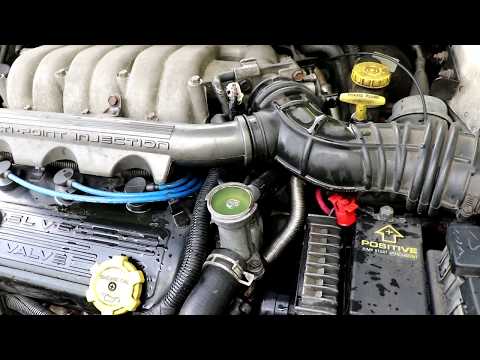Car engines need a constant supply of coolant to maintain proper temperature, guaranteeing efficient performance and avoiding damage. But sometimes, the engine may get overheated even with the proper supply of coolant.
The most frequent reasons for automobile overheating, despite having enough coolant, are a-
- Faulty thermostat
- Blocked radiator
- Damaged water pump
- Blown head gasket.
In this article, we’ll give remedies to these problems. We will also provide preventive maintenance advice to keep your vehicle operating smoothly and avoid expensive engine repairs.
The Importance of Checking Coolant Levels and Temperature Gauge

Checking the coolant levels and Temperature meter is crucial to prevent engine overheating. Let us first discuss the importance of coolant levels and then the Temperature meter below:
The Importance of Monitoring Coolant Levels
Here are a few reasons why checking coolant levels is essential:
- Monitoring coolant levels is critical to ensure that there is enough fluid to perform this function correctly. Here are a few reasons why checking coolant levels is essential:
- Checking the coolant level keeps the engine from getting too hot and makes sure it works right.gged Radiator
- Overheating can cause expensive damage to the engine, like warping of the cylinder head or engine block. Car owners can avoid pricey repairs.
- Checking the coolant level can help you find leaks early and stop more engine damage.head gaskettive maintenance
When an engine is well-kept and has the right amount of coolant, it runs better. It uses less gas, which saves the driver money.
The Importance of Temperature Gauge
Checking the temperature gauge is important for several reasons:
- By monitoring the temperature gauge, you can tell if the engine is overheating and avoid expensive repairs to parts like the cylinder head, engine block, and pistons.
- Using the temperature gauge to find problems with the engine early can make it last longer and save you money on repairs or replacements.
- Pollutants can be released into the environment when engines get too hot, so keeping an eye on the temperature gauge can help protect the environment.
- In the long run, car owners who keep an eye on the temperature gauge and take preventative steps save time and money.
Causes of Car Overheating with Full Coolant

It’s essential to consider that overheating may cause major engine damage and expensive repairs. So, you should understand the reasons behind the overheating even after the cooling system has sufficient coolant to prevent any damage.
The reasons are as follows.
Malfunctioning Thermostat
The thermostat is a machinery component that controls the flow of coolant to keep the engine running at the right temperature.
- If the thermostat is broken, it can get stuck in either the open or closed position
- It can cause the engine to run too hot or too cold.
- It can also cause the temperature gauge to fluctuate. As a result, the engine will run too hot or too cold, and the heater won’t work well.
A broken thermostat can cause more damage to the engine, like overheating, so it should be replaced as soon as possible. Most of the time, replacing a thermostat is a simple, cheap fix that a mechanic or a car owner who knows what they’re doing can do.

Radiator Clog
The radiator is a part of the engine that cools the coolant as it moves through the engine. A clogged radiator can slow the flow of coolant, which can cause the engine to get too hot.
Mineral deposits, rust, and debris buildup are all common reasons why radiators get clogged. When the radiator is clogged, the temperature gauge goes up, the heater doesn’t work as well, and coolant leaks.

A clogged radiator can cause more damage to the engine, like overheating, so it should be fixed as soon as possible. Regularly flushing the radiator can help keep it from getting clogged, but if it gets too clogged, it may need to be replaced.
Broken Water Pump
The water pump is a mechanical part that can wear out over time or stop working because it had manufacture defects.
If the water pump is broken,
- the coolant will leak
- the engine will make a grinding sound
- the car will get too hot.
If you don’t fix a broken water pump quickly, you could end up with a warped cylinder head or a cracked engine block. To replace a water pump, you usually have to take apart several parts of the engine. This makes the repair time-consuming and expensive.
Blown Head Gasket
Even if the coolant level is full, an engine can still get too hot if the head gasket is blown. A head gasket is a seal that goes between the engine block and the cylinder head. It keeps coolant and oil from mixing. Some causes of overheating the engine due to blown head gasket are:
- If the head gasket gets broken or blown, coolant can leak into the engine’s combustion chamber or oil passages. It can cause the engine to get too hot.
- Even if the coolant level is full, this can happen if the coolant can’t move through the engine as it should.
A blown head gasket can cause the engine to overheat and can also cause other problems, such as a drop in
- engine performance
- oil contamination
- the loss of coolant
White smoke from the exhaust, coolant in the engine oil, and the engine getting too hot are all signs of a blown head gasket. To fix a blown head gasket, you usually have to take the engine out of the car and take it apart, which takes time and costs money.
Watch this video to learn more about blown head gaskets.
To properly resolve the problem, it is critical to determine the source of the overheating.
Solutions for Addressing Car Overheating with Full Coolant
To avoid serious engine damage, it is critical to handle overheating as soon as possible. Here are several ways to avoid overheating with sufficient coolant:

Turning Off the Air Conditioning
The air conditioning system may place additional pressure on the engine, causing it to overheat. Turning off the air conditioner might assist in relieving tension and cooling the engine.
Turning on the Heater
Turning on the heater may assist in draining heat from the engine, lowering its temperature.
Monitoring Coolant Leaks
Even though the coolant level is full, coolant leaks may cause the engine to overheat. Looking for leaks and correcting them as soon as possible might assist in remedying the problem.
Minor coolant leaks can be repaired using a sealant or patch kit.
If a damaged hose or a cracked radiator is causing the leak, it may be necessary to replace these parts.
Consult your vehicle’s manual or a trusted mechanic for guidance on the specific parts that need replacement.
Flushing the Coolant System
Flushing the coolant system may assist in removing any debris or mineral buildup that may be clogging the radiator or other system elements.
Changing Parts
If a damaged thermostat, broken water pump, or blown head gasket cause overheating, the problematic element must be replaced to properly treat the problem. If you have car repair experience, you can replace a thermostat, water pump, or head gasket yourself. Replacing these parts involves these steps:
- Before working, cool the engine.
- Use your car’s manual or a mechanic to find the problem.
- Drain the coolant system and remove any belts or hoses blocking the faulty component.
- Remove the old part without damaging the engine or surrounding parts.
- Remove old gasket material and debris from the installation area.
- Install the new part, aligning and securing it as instructed.
- Refill the coolant system and check for leaks.
- Start the engine and monitor the temperature gauge for overheating.
- After confirming the repair, reassemble the parts and properly dispose of the old parts and coolant.
Preventive Maintenance Tips for Avoiding Car Engine Overheating
In addition, to manage the overheating issue when it happens, automobile owners should follow certain preventative maintenance guidelines to avoid engine overheating. Here are a few examples:

Regular Maintenance
Regular maintenance, such as oil changes and tune-ups, will assist in ensuring that your car’s engine is performing correctly. It also ensures that the engine is not overworking the cooling system.
Coolant System Checks
Checking the coolant level on a regular basis and topping it up as required might assist in avoiding overheating. It is also critical to inspect the system for any leaks that may cause coolant loss.
Temperature meter monitoring
Keeping an eye on the Temperature meter will help you detect any symptoms of overheating early on and take action before significant harm occurs.
Avoid Overloading
Avoid overloading the automobile with too much weight since this puts additional pressure on the engine and might cause it to overheat.
Drive With Caution
Avoid driving forcefully, particularly in hot weather, since this might cause the engine to overheat. Also, in hot weather, it is essential to prevent lengthy idling.
Car owners may help reduce engine overheating and extend the life of their vehicles by following these preventative maintenance guidelines.
If you’re dealing with a car that is overheating despite having a full coolant level, you may also find our articles on can you use water as coolant in your car and using distilled water as coolant helpful. The article on using water as coolant in your car explores the possibility of using water as a temporary solution and its limitations. On the other hand, the article on using distilled water as coolant delves into the benefits and considerations of using distilled water to maintain your car’s cooling system. These resources provide valuable information for understanding your options when dealing with an overheating car and the role of water or distilled water in the coolant system.Conclusion
Car overheating with full coolant can be an annoying and sometimes an expensive issue. By checking coolant levels, temperature meters, and overheating reasons, car owners can avoid costly engine repairs.
Regular maintenance, coolant system inspections, temperature meter Checking, avoiding overloading, and driving safely prevent engine overheating. Note that it is always preferable to treat automobile overheating early on before it causes major engine damage.

